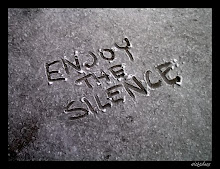To describe both terms, it is imperative upon us to first define their root, that is, secular. According to Al-Attas what is emphasized in this term is condition in this particular time seen as historical process [1]. According to Jose Casanova, it is a category by which we define the entirety of contemporary Western civilization, that is, from theologico-philosophical, legal-political, and cultural-anthropological aspect of it. And as Azzam Tamimi has rightly shown, this secular notion cannot be correctly comprehended outside the Western civilization context. Thus, to speak the concept of secular is first to understand it within the particular context of Western civilization. However, this humble writing is not intended to deeply discuss it; instead it merely tries to talk about several definitions concerning secularization and secularism offered by scholars. Both terms will be treated as something related and, many times, overlapping each other.
Secularization is generally regarded as a process of differentiation between “religious” and “secular”. We can speak of it, utilizing categories made by Jose Casanova, through three perspectives; theologico-philosophical, cultural-anthropological, and legal-political. From the first angle, Al-Attas say that secularization is liberation of human reason and language from control of something religious and metaphysical; and turning human attention from the world beyond into this world. In somewhat different context, Tamimi, when talking about object of secularization within Arab society, characterize it as “to effect a complete break with the past”, i.e., to set apart Muslims’ consciousness from their past, the Islamic Tradition. Linked to this category also is description of modern secularism given by Barry Kosmin, which, according to him, is divided into two types; hard and soft secularism. The former considers religious propositions as epistemologically illegitimate, since not warranted by both religion itself and experience. The latter holds the impossibility of reaching absolute truth and, consequently, skepticism and tolerance should be standard by which we look at other’s opinion. According to Ikado Fujio, it is "the process whereby transcendental sources of value come to be expressed by the use of future-oriented symbol systems, such as `hope'.” Thus, secularization involves setting apart of human intellectually and individually from religious control, the Tradition, religious propositions, and religious consciousness.
Another approach to understand secularization is through cultural-anthropological perspective, which is, in many cases, more apparent. Culturally it means “the disappearance of religious determination of the symbols of cultural integration”. In Arab context, it is “the marginalization of Islam or its exclusion from the process of re-structuring society during both the colonial and post-independence periods”. This suggests that Islam is excluded as much as possible from shaping the society. It is also differentiation of things “secular”; like economy, science, art, entertainment, health, and welfare; from those “religious”; such as ecclesiastical institution and church’s activities. It also means “the transfer of activities from religious to secular institutions, such as a shift in provision of social services from churches to the government.” We may conclude that secularization culturally and socially is the disappearance of religious symbols, omission of religion’s role in shaping society, differentiation between what is secular, i.e., related to this world only and what is religious, i.e., related to the world beyond, and moving social activities from religious to secular institutions.
From legal-political perspective, secularization is “the taking over of church property by the state for secular purposes”. It also means separating government from religious institutions and is choosing man-made law as a state constitution instead of laws which are derived or inspired by religion. It is, thus, overtaking the governmental role of religion by the state governed solely by human reasoning.
With regard to secularism, many definitions have been suggested by scholar. Here I will employ
Wednesday, 7 January 2009
Defining Secularization and Secularism
Posted by
Imdad Robbani
at
19:27
![]()
Labels: definition, secular, secularism, secularization
Subscribe to:
Post Comments (Atom)








1 comment:
Hi Imdad,
Thanks for visiting my place, too. Anytime you wanna have a discussion just let me know...
Ian
Post a Comment